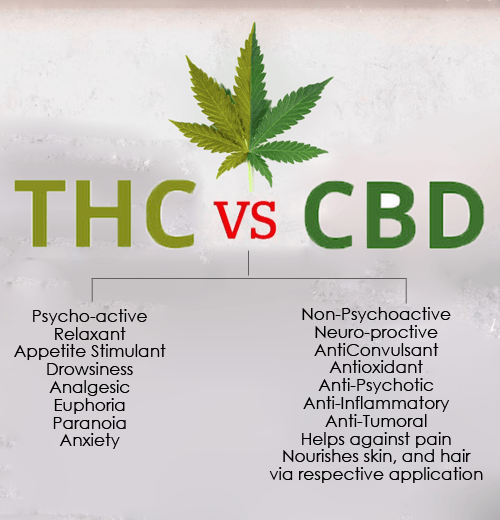CBD vs. THC: Understanding the Key Differences
Cannabidiol (CBD) and tetrahydrocannabinol (THC) are two of the most well-known cannabinoids found in the cannabis plant. While they share some similarities, they have distinct effects and uses. Understanding the differences between CBD and THC can help you make informed decisions about cannabis consumption.
What Is CBD?
CBD is a non-psychoactive compound primarily derived from hemp. It interacts with the body’s endocannabinoid system to promote balance and wellness without producing a “high.”
Potential Benefits of CBD:
- Pain relief
- Anxiety and stress reduction
- Anti-inflammatory properties
- Improved sleep quality
- Support for neurological disorders
What Is THC?
THC is the primary psychoactive compound in cannabis that causes the “high” sensation. It binds directly to CB1 receptors in the brain, producing euphoric and mind-altering effects.
Potential Benefits of THC:
- Pain relief
- Appetite stimulation
- Nausea and vomiting reduction (useful for chemotherapy patients)
- Muscle relaxation
- Sleep aid
Key Differences Between CBD and THC
| Feature | CBD | THC |
|---|---|---|
| Psychoactive Effects | No | Yes |
| Legal Status | Legal in many regions | Restricted in some areas |
| Medical Uses | Anxiety, pain, seizures | Pain, nausea, appetite |
| Side Effects | Minimal (dry mouth, drowsiness) | Possible anxiety, dizziness |
| Drug Test Detection | Unlikely | Likely |
Which One Is Right for You?
Choosing between CBD and THC depends on your needs. If you’re looking for therapeutic benefits without psychoactive effects, CBD is a great option. If you need stronger relief for pain, nausea, or sleep issues, THC may be more suitable.
Final Thoughts
Both CBD and THC offer unique benefits, and understanding their differences can help you find the right product for your needs. Always consult with a healthcare provider before starting any new cannabis-based regimen.
For more cannabis insights and product recommendations, stay tuned to our blog!


